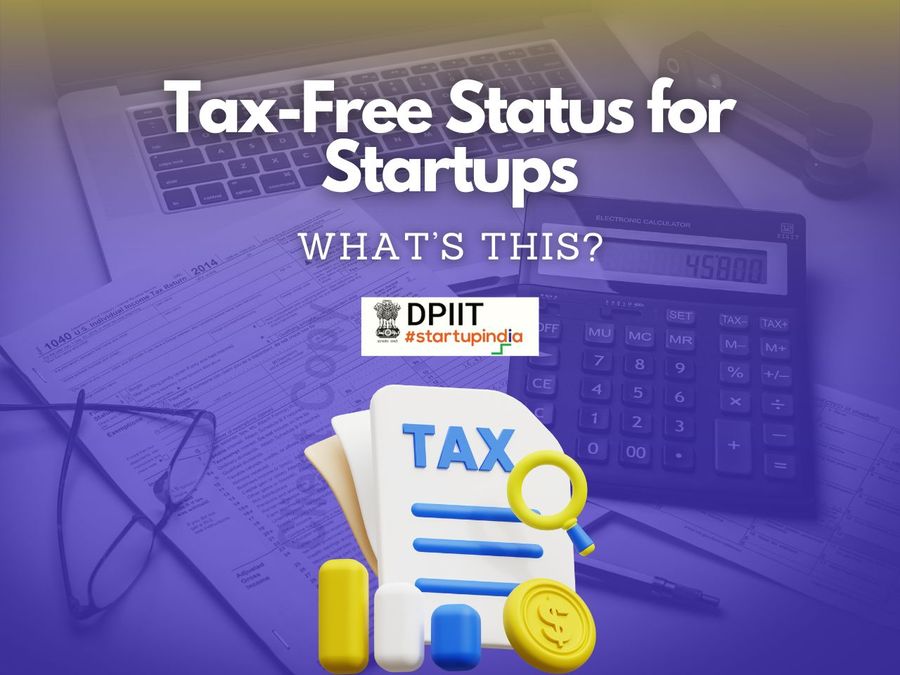In a strong move aimed at fueling India’s fast-growing startup economy, the Department for Promotion of Industry and Internal Trade (DPIIT) has granted income tax exemption to 187 startups under the updated provisions of Section 80-IAC of the Income Tax Act. The decision was finalized during the 80th Inter-Ministerial Board (IMB) meeting held on April 30, following an earlier clearance of 75 startups during the 79th IMB meet.
With this latest round of approvals, the total number of startups benefiting from the scheme has now crossed 3,700—a significant milestone in the government’s startup support efforts.
What Does the Tax Exemption Actually Offer?
The benefit allows eligible startups to avail 100% income tax exemption on profits for any three consecutive years within the first ten years from their date of incorporation. This means qualified startups can retain more of their earnings, which can be redirected into growth, hiring, product development, and innovation.
The exemption isn’t automatic, startups need to go through an application and evaluation process. But for those who qualify, the reward is substantial, especially during the cash-strapped early years.
Deadline Extended: Startups Can Now Apply Till 2030
In a major relief and opportunity for future entrepreneurs, the eligibility window has now been extended till April 1, 2030. Announced in the Union Budget 2025–26, this policy update means startups incorporated on or before April 1, 2030, are now eligible to apply for tax exemption under Section 80-IAC.
This extension gives a longer runway for new startups to benefit from the scheme, and is seen as a sign of continued government commitment to fostering innovation and entrepreneurship in India.
Faster Approvals with a New Evaluation Framework
The DPIIT has also revamped the application process, introducing a revised evaluation framework that aims to make the entire process more efficient and transparent.
Under the new system, applications that are complete in all respects will be evaluated within 120 days. This timeline is designed to reduce uncertainty for founders and speed up decision-making, a welcome move for startups that often face bureaucratic delays.
Why Some Startups Didn’t Make the Cut
While 187 startups were approved this time, many were also asked to rework and reapply. The government has encouraged those who did not receive clearance to strengthen their application and focus on core criteria such as:
-
Technological innovation
-
Market scalability
-
Economic impact
-
Job creation potential
Startups are advised to ensure their value proposition is well-articulated and backed by clear documentation before submitting their request for tax exemption.
What This Means for India’s Startup Ecosystem
This move isn’t just about tax breaks. It signals a broader strategy of the Indian government to support entrepreneurship through policy and incentive-based frameworks. With more than 3,700 startups now having received this benefit, the policy is clearly being used actively and is having real-world impact.
The DPIIT’s push aligns with the country’s larger goals of becoming a global innovation hub, boosting job creation, and driving economic growth through self-reliant ventures. These incentives reduce financial pressure on startups during their early-stage operations, one of the most critical periods in a startup’s journey.
How to Apply
Startups interested in availing the benefit can apply through the Startup India portal. The platform offers detailed guidance on eligibility, documentation requirements, and the step-by-step process to apply under Section 80-IAC.
This tax exemption is more than a financial perk—it’s a validation of a startup’s potential to contribute meaningfully to India’s economy. If your startup meets the criteria, this might be the right time to apply and leverage a government-backed boost to scale your vision.
As India continues to cement its place in the global innovation map, such measures play a crucial role in empowering entrepreneurs and transforming ideas into impactful ventures.



